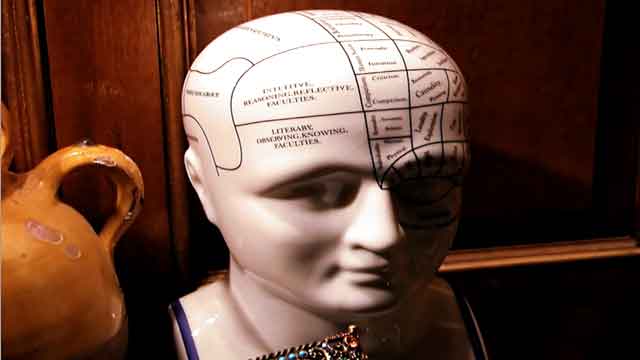
 Photo by Mikamatto
Photo by MikamattoHave you ever heard the term lobotomy? Most of us have heard this term before, but what is a lobotomy? And more specifically, can it cure depression?
Our lives are full of all sorts of mental disorders and diseases these days and most have been around for quite some time. Many of these were not discovered until the 20th century simply because the available technology did not exist before then to pinpoint them.
Depression is something that is quite common in many people’s lives today and is usually treated with medications or possibly therapy. But is it possible that a lobotomy could be a cure for depression? First we need to discuss exactly what a lobotomy is. In an earlier post, The Unorthodox Methods for Curing Mental Illness, we discussed many of the bizarre and quite frankly cruel methods that have been used over the ages to cure mental disorders. Lobotomies are probably not as unorthodox as some of those methods, but a bit unusual none the less.
What is a Lobotomy?
A lobotomy is a surgical procedure that is meant to treat patients for pain or emotional disorders. Treatments of this sort go back as far as 1848. It was in America where an Irish mine worker had an iron bar javelined into the front part of his head during an explosion that actually led way to lobotomies.
This accident naturally caused him a great deal of pain and was a very serious injury. But then doctors began to notice that after the accident, the patient, Phineas Gage, was experiencing a complete change in his personality. But unfortunately the changes were not good ones.
Before Gage’s accident he was thought of as a well liked, soft-spoken individual. He was a religious man and very well respected. But after his accident he became very impatient, fitful and down right disrespectful. He also began using a lot of profanity while talking to people. But it was his unfortunate personality changes that implied to doctors that a similar procedure could have great medical benefits.
Who Created the Lobotomy Procedure?
Walter Freeman, an American neurologist and psychiatrist is well known as the “father of the lobotomy”. Up until 1972 he had records of over 3,000 lobotomies that he’d performed during his career.
Freeman along with his colleague James Watts were pioneers in the field and carried out lobotomies on a huge number of patients with aggressive behaviors. The lobotomies were meant to calm the patients and cure their mental disorders.
According to Freeman, lobotomies worked due to the severing of nerves that were connected between the frontal lobe of the brain, and the thalamus. The thalamus is the portion of you brain where instructions are processed for things like sight, hearing, touch and taste.
Freeman believed that the thalamus was the main controlling factor when it came to processing emotions. It seemed logical simply because patients that exhibited aggressive behaviors apparently had too much emotion.
Most patients found their conditions had greatly improved after their lobotomy procedure, but it did come with some set backs. Many of them had to relearn simple tasks such as eating, using the bathroom and even how to dress themselves. It was also not uncommon for some patients to die shortly after having a lobotomy.
Can a Lobotomy Cure Depression?
The first lobotomy performed on a patient dealing with depression was in 1936, by Dr. Freeman himself. The lobotomy was performed on a 63 year old woman named Alice Hammatt. She was a chronic sufferer of depression and the procedure was a possible cure.
Freeman and his assistants drilled six holes into the top of Mrs. Hammatt’s skull during the operation. Then according to Freeman, Mrs. Hammatt came through the lobotomy with flying colors. So evidently a lobotomy was the right procedure for her depression.
There were a few scary methods that Freeman used to perform his lobotomies. One involved the patient lying flat with his or her eyes open. Then using only a local anesthetic an ice pick was inserted into the patient’s eye socket and tapped with a hammer until the bone was broken. Then they would push the tip of the ice pick about an inch and a half into the frontal lobe of the brain and wiggle it back and forth! Oh man, I would freak out if someone was doing this to me! If that wasn’t enough, then they would do the same thing in the other eye!
Here’s something I bet not everyone knows. John F. Kennedy’s sister Rosemary received a lobotomy from Dr. Freeman. Apparently she suffered from some learning difficulties and was quite a problem child. So her father Joe Kennedy consulted Freeman and of course he recommended a lobotomy, what else right? Some think that the young girl had begun to take notice of the boys and the Kennedy family was afraid she might embarrass them, so bust out the lobotomy ice pick! lol
But here’s the kicker. The lobotomy was a complete failure and it left her incapacitated. She became incontinent and was unable to speak more than just a few words. She wound up spending most of her days staring blankly at the walls. She remained this way until her death at the age of 86. During her lifetime she was never without the need for special care. Lobotomy side effects can be devastating, at least she got lucky and survived. Although some may argue she got the short end of the stick, when death sadly would of been the better option.
Rosemary wasn’t the only disaster under Freeman’s belt. In 1967 he performed a lobotomy on another female patient where he accidentally severed a blood vessel and she died three days later from hemorrhaging.
After a few failed attempts and a couple of disasters, Freeman’s career came to an abrupt hault. Dr. Freeman eventually died at the age of 76 from cancer.
So is a lobotomy the miracle cure for depression? Well, I don’t think anyone can say for sure, but lobotomies are definitely not without risk. I think taking medications and visiting a therapist once a week sure beats having an ice pick jammed into your eye sockets. So I can with great certainty tell you I would not recommend a lobotomy for depression. How do you feel about all this, would you be the next candidate for the ole ice pick?



I am very glad to read this type of procedure here I want to in this procedure any pain come out of that time and you known this is one of the most interesting topic I never read this type of topic thanks for share with me.
Thanks, I’m glad you enjoyed the topic. Depression is a very serious thing and there are new medical advances all the time. I’m sure one day in the future there will be a cure, hopefully something not quite as barbaric as the lobotomy.
Rosemary didnt get the ice pick lobotomy, she had the original one, the prefrontal lobotomy.
Thanks for sharing your knowledge on this one mykka. I can’t imagine having either type of procedure, must be brutal.